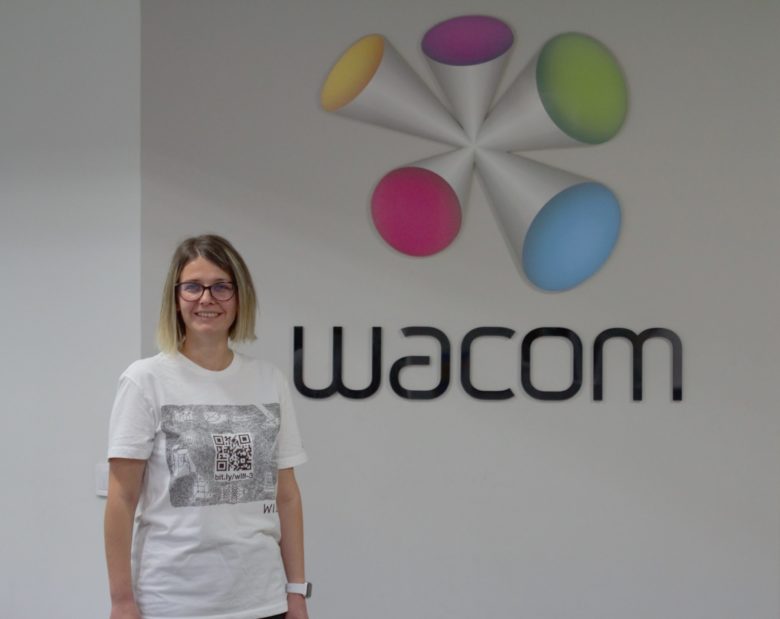Wacom: The Japanese Giant And The Bulgarian Digital Ink & Machine Learning Contribution to the Tablet Market

This article contains an affiliate link to our partner hiring platform Noble Hire. Тhe material is, however, editorial. This series of company profiles aims to present carefully selected tech companies that offer opportunities. By clicking the affiliate link and signing up for Noble Hire, you automatically increase our chance for financial sustainability.
On a mission to create life-long ink, the Japanese giant that specialized in tablets, digital pens, and digital ink Wacom has been experimenting with different technologies since 1983. In the past eight years, one of the three key R&D centers has also been quietly experimenting and launching innovations out of Sofia. From a contractor ten years ago, one Bulgarian company that Wacom acquired in 2012 turned into a key engine that has patented the famous digital ink of the company and is now working on turning handwriting into text and extracting information from it.
“Our team is dedicated to finding the symbiosis between our brainchild – the digital ink, and the Wacom hardware. The projects in the field of semantic search is what we are currently very excited about,” tells us Antoaneta Stoyanova, Director Software and E2E QA at Wacom Bulgaria. She’s been with the company since 2008 as a contractor, turned into QA manager four years later when the company entered the market officially, and has seen the growth of the local R&D center from a handful of people to a growing team of 45 specialists. For the several years the Bulgarian office has been active, it managed to file ten patents and continues working on new technological advancements that will make the work of creatives, teachers, students, and business professionals, easier.
The life-long ink and who is WILL?
Wacom is a 37-years-old company with roots in Japan that has pioneered the graphic tablets on the market already in 1992 and has been a leader (holding between 70% and nearly 90%) of the market for digital writing in the past 15 years. What Wacom is even more famous for are the company’s digital pens – indeed most of the pens the world uses to write on a smartphone are produced by Wacom and use the digital ink technology so that the device also captures what the pen writes (Wacom’s devices work with all kinds of digital ink). Thus, the vast majority of people in the US, Europe, and Asia have been in touch with the products of Wacom at one point – tablets, pens, or applications.
Initially used mostly by creatives, designers, and animators, the technology of Wacom is steadily increasing its relevance in the past years also in the field of e-learning and higher education. And this, also given the recent pandemic changes in the way the world works, requires also more collaborative digital tools. So now, Wacom is on a new quest and develops the cloud platform, community, and applications to help everyone create and share new ideas and expressions.
Based on more than three decades of experience in natural user interface, Wacom is now taking the initiative to create a global standard for digital ink called WILL. Designed as the ink standard for the 21st century, WILL enables the capturing and sharing of digital ink in the cloud and beyond operating systems and hardware platforms. This is the core technology that enables universal exchange of digital ink content across applications and platforms and the most natural user experience for digital pen and ink inputs on any device. This is also where the Bulgarian division of the company plays a crucial role.
Bulgaria and the intelligent digital ink
Wacom has its whole software R&D distributed between Oregon, the US, the UK, and Bulgaria, and hardware is produced in Asia. The American division develops drivers, the UK team is working on digital signature verification technologies, and Sofia is responsible for the digital ink.
Wacom’s Ink Division manages the portfolio of digital ink technologies as well as digital ink software and platforms that are essential for building new applications that serve end customers and other businesses. The team of 45 people (50% of which women) in Sofia is the one expected to bring the majority of these technologies to life. In the past years, the team has been specializing also in machine learning and cloud to make all these ambitious plans possible. “Turning hand-writing into machine-readable text and being able to extract and analyze and conduct semantic search is one example of what the local team is working on,” tells us Stoyanova. To make all this happen, the team, especially the software development one, will have to grow and mature in the next months. Wacom will need strengthening in all areas – cloud, iOS, Android, Windows. “Given the use cases for education we are currently developing, the cloud team may need to grow the most,” specifies Stoyanova.
Working on global level products and using interesting technologies, but not least the ambition of the local team combined with a relaxed and friendly environment, is Wacom’s USP on the talent market, Stoyanova is convinced. “I’ve been part of this company for over a decade and what keeps me here is the creative freedom I have and the touch to cutting-edge new technologies,” she explains. What she has also enjoyed is being part of a rather untraditional Japanese corporate structure, where there’s no clear and formal hierarchy and everyone could get in touch with the CEO if needed. And the same style translates in the local structure – no formal hierarchies and really a team of ambitious people working together towards a common goal. “I’m so proud of what we’ve achieved here as a team and excited for the projects that are yet to come in the next several months. Even though I cannot reveal too much, it’s going to be connected to new hardware projects, machine learning, and handwriting.”
See similar company profiles:
Bianor: 22 Years Between NATO, The Library of Congress, and Video Streaming




























